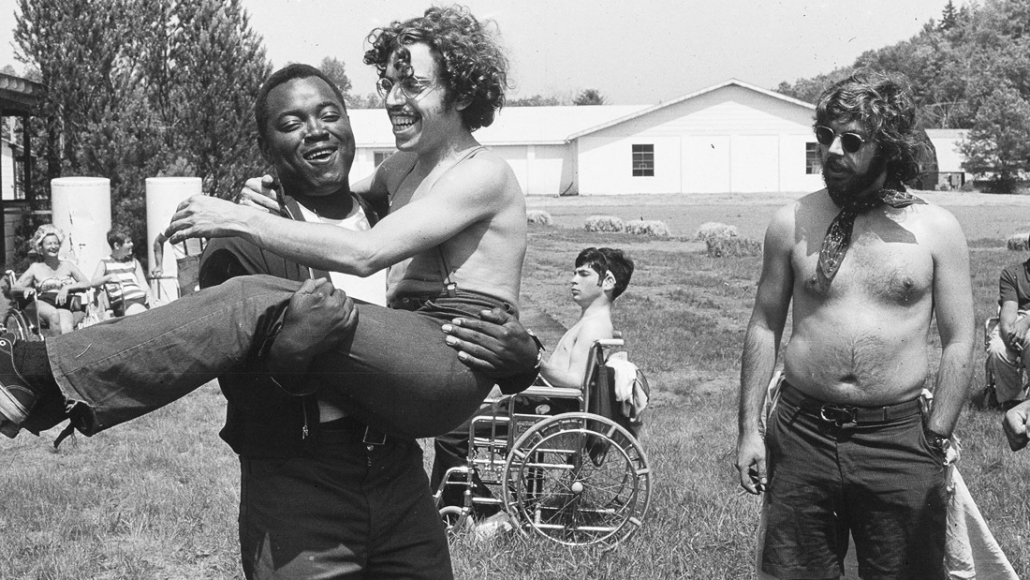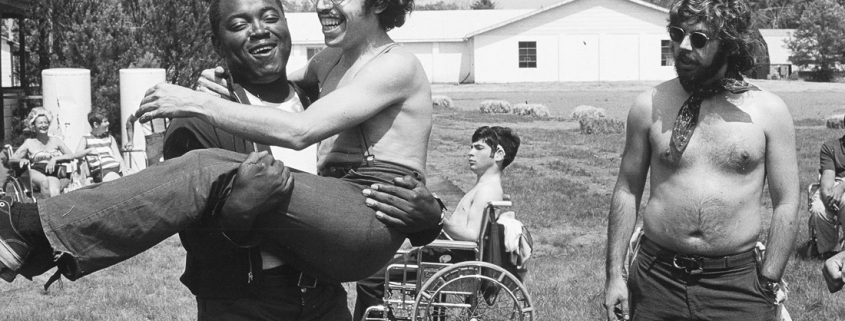REVIEW: ‘Crip Camp:’ A nostalgia trip that shows just how far we have to go

Camp Jened, as one camper gleefully puts it, is a “utopia.”
This is a camp where kids sing, play, flirt and fall in love. And, according to the Netflix documentary “Crip Camp: A Disability Revolution,” it’s maybe the one place they can be themselves.
Camp Jened was founded in 1951 for people with disabilities. Not exactly a revolutionary concept today, but for a country pre-Americans with Disabilities Act where asylum-like institutions abound, this space means everything to its campers. It’s a relief, they say, to not be constantly surrounded by the able-bodied.
“At camp, everybody had something going on with their body,” camp alumnus Jimmy LeBrecht said in the documentary. “It just wasn’t a big deal.”
The audience is introduced to Camp Jened through black-and-white videos dating from the early 1970s. It’s a Woodstock-like setting, full of flower crowns and rebellious young teens who we follow through to the present day. There’s Denise Jacobson, who recounted a youthful tryst that resulted in an STI. “I wasn’t going to die a virgin,” she said slyly. Then there’s Steven Hoffman, who later took to the stage as a drag queen with “Sweet Transvestite” blaring. And Judy Heumann, a counselor who spoke to the campers with distinct poise.
There are others, too, but these are the characters who dominate the screen. They’re irresistible — spunky, perseverant and, above all, hilarious — and they make this a documentary worth watching. Although the strumming of guitars and images of sun-dappled summer camp are atmospheric, it’s really the cast of characters that are worth sticking around for. It’s difficult not to feel like you, too, are being enfolded into Camp Jened.
“Crip Camp” is less about Camp Jened and more about the bonds campers form there. This is a place for people with disabilities to not only enjoy their childhood, but it is also a safe space for them to reconcile the experience of being differently abled in America.
At Camp Jened, kids can sit around and talk about their lives. Mostly, it’s the usual gripes of being a teenager, like overprotective parents or relationship troubles. But there’s also the added dimension of growing up in an unaccepting environment. “A parent is afraid to show that their son is disabled, or handicapped or whatever you might call it,” remarks a camper at one of Jened’s roundtable conversations. “I think it’s much more out of fear than overprotectiveness.”
Camp Jened is a place where these conversations are possible. And this explains why halfway through the documentary, the focus shifts away from the camp and to protests during the 1970s to pass Section 504, a law which demands that all institutions receiving public funding provide equal access.
Taking place mostly in San Francisco and Berkeley, Calif., these protests were headed by many faces familiar from Camp Jened. In one scene, Heumann led the protesters in singing, an image reminiscent of her time at Camp Jened. Corbett O’Toole, an organizer of the 1977 sit-in at San Francisco’s Federal Building, joked “There was like the traveling Camp Jened show.”
In many ways, the documentary is an homage to the civil rights movements of the ’60s and ’70s. Classic rock anthems play over videos of children spinning in flower crowns. Photos show members of the Black Panthers dropping off meal kits to protesters.
But though “Crip Camp” largely delves into the past, it still presents a timely conversation. This is one of the documentary’s major draws; even as it indulges in nostalgia galore, “Crip Camp” always reminds you of its relevance. The documentary shows that the struggle for equality is still far from over. The protests of the ’70s bled into the ’90s, with some thousands of people with disabilities protesting in the streets of Washington D.C. for the passage of the Americans with Disabilities Act. One image, of people in wheelchairs attempting to mount stairs in D.C., perhaps best embodies what it means to be disabled in America.
“I’ll take all night if I have to!” says one child through gritted teeth as she pulls herself up the Capitol steps.
She speaks with the determination that we first saw in Camp Jened — a determination that remains with the original campers to this day.
When the campers return to the grounds where the camp once stood — it was shut down in 1977 due to financial difficulties — they’re thankful.
“I almost want to get out of my wheelchair and kiss the fucking dirt,” laughs Jacobson, rolling around the dirt lot.
But she grows solemn as she surveys the now-demolished camp.
“Could you ever have imagined,” asks Jacobson, “where we would go?”
“Crip Camp” is certainly a trip to the past, indulgent in the faded colors of the ‘70s and protest rock anthems. But it also heralds the changes that are yet to come in America.


